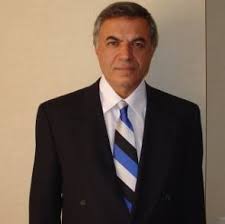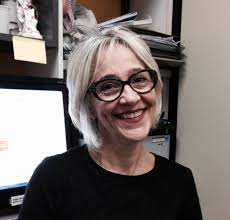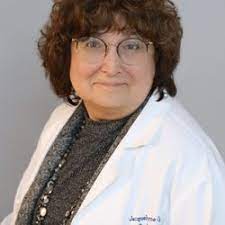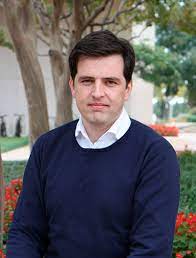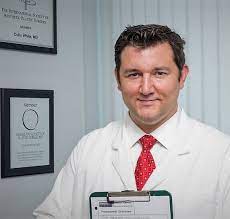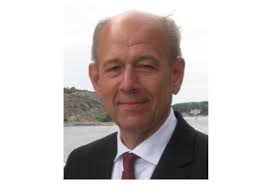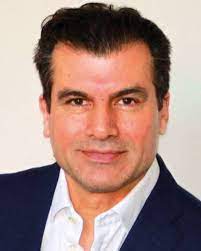Session and Tracks
Otology and neurotology are dynamic subspecialties within ENT focused on diagnosing and treating ear and balance disorders. This track will explore the latest advancements in otologic and neurotologic diagnostics and therapeutics. Topics include chronic otitis media, sensorineural and conductive hearing loss, acoustic neuromas, tinnitus, vertigo, and facial nerve disorders. Emphasis will be placed on cutting-edge technologies such as high-resolution imaging, cochlear implants, bone-anchored hearing systems, and minimally invasive ear surgeries.With a growing emphasis on personalized medicine, this session will also discuss genetic insights into hearing disorders and their implications for targeted therapy. Innovations in auditory implants, vestibular testing, and neuro-navigation systems are revolutionizing patient outcomes. This track is essential for ENT specialists, audiologists, and researchers dedicated to advancing ear and balance disorder care.
Keywords: Otology conference 2026, Neurotology innovations, Hearing loss treatment, Cochlear implants, Vestibular disorder therapy, ENT Dubai 2026, ENT diagnostics, Ear surgery advances, Tinnitus treatment.
Rhinology plays a critical role in the comprehensive care of patients with nasal and sinus disorders. This track at ENT-2026 will cover a wide array of topics such as chronic rhinosinusitis, nasal obstruction, allergic rhinitis, nasal polyps, deviated nasal septum, and epistaxis. The session will highlight the latest diagnostic imaging techniques, endoscopic sinus surgeries, balloon sinuplasty, and immunotherapy.Participants will gain insights into advancements in functional endoscopic sinus surgery (FESS), image-guided navigation systems, and the integration of biologic agents for severe chronic sinusitis. The track will also delve into the emerging role of microbiome research in sinus health and innovative therapeutic options. Attendees will leave with a deeper understanding of rhinological disorders and modern treatment pathways.
Keywords: Rhinology conference, Sinusitis treatment, Nasal obstruction solutions, Allergy management ENT, Endoscopic sinus surgery, ENT conference Dubai, FESS updates 2026, Balloon sinuplasty, Nasal polyps diagnosis, ENT care 2026.
Laryngology focuses on disorders of the larynx, including voice, airway, and swallowing disorders. This track will explore the latest advancements in diagnosing and managing laryngeal diseases such as vocal cord nodules, laryngitis, vocal fold paralysis, and laryngeal cancer. The session will include voice therapy techniques, phonomicrosurgery, laryngeal framework surgery, and transoral laser microsurgery.Emerging technologies such as stroboscopy, high-speed video endoscopy, and 3D imaging have transformed the visualization and assessment of vocal function. Participants will learn how to implement multidisciplinary approaches combining otolaryngology, speech-language pathology, and oncology for optimal outcomes. This track is ideal for ENT surgeons, speech therapists, and voice specialists.
Keywords: Laryngology updates 2026, Voice disorder conference, Vocal cord treatment, ENT laser surgery, Phonomicrosurgery innovations, Speech pathology ENT, Laryngeal cancer management, ENT diagnostics Dubai, Vocal fold paralysis treatment.
Pediatric ENT is a vital area within otolaryngology focused on the unique anatomical and physiological needs of infants and children. This track addresses pediatric hearing loss, congenital abnormalities, adenoid and tonsil disorders, pediatric airway issues, and speech and language delays. Attendees will gain insights into advancements in newborn hearing screening, minimally invasive surgeries, and pediatric-specific diagnostic protocols.Topics such as cochlear implantation in children, management of otitis media with effusion, and pediatric sleep-disordered breathing will be covered. Emphasis will also be placed on multidisciplinary care involving pediatricians, audiologists, and speech-language pathologists. This track supports clinicians in providing compassionate and evidence-based care for young patients.
Keywords: Pediatric ENT conference, Child hearing diagnostics, Adenoidectomy and tonsillectomy, Pediatric airway management, ENT care in children, ENT Dubai 2026, Pediatric speech therapy, Cochlear implants in children.
This track focuses on the prevention, diagnosis, and treatment of benign and malignant tumors affecting the head and neck region, including the larynx, pharynx, thyroid, salivary glands, and oral cavity. The session will explore innovations in molecular diagnostics, imaging, robotic-assisted surgeries, and targeted immunotherapies.Participants will learn about personalized treatment strategies, precision radiotherapy, and surgical reconstruction techniques that are transforming cancer care. Emphasis will also be placed on survivorship, rehabilitation, and quality of life after treatment. This session is ideal for oncologists, head and neck surgeons, and radiologists. The track will further examine biomarkers for early detection, HPV-related head and neck cancers, and the integration of genomic profiling to guide therapeutic decisions. Attendees will gain insights into minimally invasive surgical approaches, organ preservation protocols, and the management of treatment-related side effects such as dysphagia, xerostomia, and voice loss. Case studies and panel discussions will explore multidisciplinary team approaches, highlighting collaboration between oncology, ENT, pathology, and speech therapy. The importance of psychosocial support, nutritional counseling, and long-term follow-up care will also be addressed. This session aims to provide a comprehensive framework for delivering cutting-edge, compassionate, and individualized oncology care.
Keywords: Head and neck cancer conference, ENT oncology 2026, Robotic head and neck surgery, Targeted cancer therapy ENT, Salivary gland tumor treatment, Thyroid cancer diagnostics, ENT cancer imaging.
This track explores the evolving landscape of hearing technologies and rehabilitation strategies aimed at restoring auditory function. Topics include the design and implementation of digital hearing aids, bone-conduction devices, cochlear and middle ear implants, and wireless assistive listening systems. The session will also emphasize the importance of audiological rehabilitation in improving communication and quality of life.Presentations will cover innovations in sound processing, AI integration in hearing devices, remote programming technologies, and pediatric vs. adult auditory rehabilitation programs. Specialists in audiology, biomedical engineering, and ENT surgery will benefit from these forward-looking discussions. Further discussions will highlight real-world outcomes from device users, focusing on speech recognition in noise, device customization, and patient satisfaction. Experts will examine candidacy criteria for implantable hearing solutions, pre- and post-implant counseling, and the role of multidisciplinary teams in hearing rehabilitation. Emphasis will also be placed on accessibility, affordability, and equitable distribution of hearing care technologies in low-resource settings. Advances in neural interface technologies, hybrid electro-acoustic devices, and regenerative therapies for sensorineural hearing loss will be introduced as part of future directions. This comprehensive track aims to empower clinicians and researchers with the tools to maximize hearing restoration and patient engagement.
Keywords: Hearing aids Dubai 2026, ENT hearing devices, Cochlear implant updates, Audiology rehabilitation, Assistive listening technologies, Bone conduction hearing aids, ENT digital health.
Balance disorders impact millions worldwide, often causing dizziness, vertigo, and impaired mobility. This track focuses on vestibular diagnostics and treatment strategies, including vestibular neuritis, Ménière’s disease, BPPV (Benign Paroxysmal Positional Vertigo), and vestibular migraine. Advanced vestibular testing methods like VNG (videonystagmography), rotary chair testing, and posturography will be explored.Therapeutic advancements, including vestibular rehabilitation therapy (VRT), canalith repositioning procedures, and pharmacologic interventions will be discussed. This session is designed for ENT physicians, neurologists, and rehabilitation therapists seeking to improve outcomes for patients with balance disorders. The track will also cover recent innovations in wearable balance sensors, mobile diagnostic tools, and tele-rehabilitation platforms for remote patient care. Attendees will explore the integration of audiovestibular data to differentiate central versus peripheral causes of vertigo and learn about co-management strategies involving cardiology, psychiatry, and geriatrics. Pediatric vestibular disorders and balance assessment in older adults will receive focused attention, highlighting age-specific evaluation protocols. Real-world case studies will emphasize diagnostic accuracy and individualized treatment planning. By incorporating interdisciplinary perspectives and emerging technologies, this session aims to equip healthcare professionals with practical and advanced tools to enhance diagnosis, therapy, and patient education in vestibular care.
Keywords: Vestibular therapy ENT, Balance disorder treatment 2026, Vertigo diagnostics, VRT therapy, ENT Dubai balance track, Ménière’s disease solutions, BPPV care.
This track will highlight the latest in skull base surgical techniques, focusing on minimally invasive and endoscopic approaches for treating tumors, vascular malformations, and congenital abnormalities. Topics will include transnasal endoscopic approaches, craniofacial resection, CSF leak repair, and surgical navigation systems.Discussion will include surgical planning, intraoperative imaging, and postoperative rehabilitation. Surgeons specializing in otolaryngology, neurosurgery, and maxillofacial disciplines will find valuable insights into how modern technologies are enhancing safety and surgical precision.
Keywords: Skull base surgery ENT, Endoscopic ENT procedures, CSF leak repair Dubai, ENT navigation systems, Craniofacial surgery, Neurosurgical ENT collaboration, Minimally invasive ENT surgery.
Accurate diagnosis is key to effective ENT treatment. This track will focus on the latest advancements in imaging technologies and diagnostic methods in otolaryngology. Topics will include CT and MRI applications, ultrasound in ENT, narrow-band imaging (NBI), stroboscopy, otoacoustic emissions testing, and optical coherence tomography (OCT).Case-based discussions will help attendees understand how imaging guides treatment planning and outcomes in ENT diseases. This track is critical for radiologists, ENT clinicians, and diagnostic technologists aiming to adopt evidence-based diagnostic practices. The track will also cover innovations in functional imaging, such as PET-CT in head and neck oncology, diffusion-weighted imaging for skull base tumors, and advanced 3D reconstruction techniques for surgical navigation. Hands-on workshops and expert-led sessions will demonstrate real-time interpretation of ENT scans and the integration of AI algorithms for early disease detection. Additionally, emerging applications of handheld point-of-care ultrasound devices and dynamic imaging in swallowing and voice assessments will be explored. Attendees will gain practical knowledge on selecting appropriate diagnostic tools based on clinical presentation, improving diagnostic accuracy, reducing unnecessary procedures, and enhancing patient-centered care in both adult and pediatric ENT populations.
Keywords: ENT imaging 2026, Diagnostic tools ENT, MRI for ENT disorders, Ultrasound otolaryngology, OCT in ENT, NBI technology, ENT stroboscopy Dubai.
Obstructive sleep apnea (OSA) and related upper airway disorders significantly affect patient health and quality of life. This track explores diagnosis and treatment strategies for OSA, snoring, upper airway resistance syndrome (UARS), and pediatric sleep-related breathing disorders.Sessions will highlight polysomnography, home sleep testing, CPAP therapy advancements, oral appliance therapy, and surgical interventions such as UPPP (uvulopalatopharyngoplasty) and hypoglossal nerve stimulation. This track will be of high interest to ENT specialists, pulmonologists, and sleep medicine professionals. Additional discussions will focus on emerging diagnostic technologies like drug-induced sleep endoscopy (DISE), sleep MRI, and machine learning in sleep pattern analysis. Attendees will gain insight into managing complex cases involving craniofacial anomalies, obesity-related airway obstruction, and treatment-resistant OSA. The role of lifestyle modification, weight loss, and myofunctional therapy will also be addressed. Special attention will be given to pediatric populations, emphasizing early intervention, adenotonsillectomy, and long-term monitoring. Experts will explore interdisciplinary care pathways, combining ENT, dental, and neurologic expertise to improve patient outcomes. This track aims to offer a comprehensive approach to sleep-disordered breathing and promote innovation in diagnosis and management.
Keywords: Sleep apnea ENT, Upper airway obstruction, CPAP innovations, Pediatric sleep ENT, UPPP surgery ENT, ENT sleep diagnostics, Dubai ENT 2026 sleep track.
This track explores the growing connection between ENT disorders and allergic or immunologic conditions. It will highlight topics such as allergic rhinitis, chronic sinusitis with nasal polyps, eosinophilic esophagitis, and immunotherapy approaches. The session will also discuss advancements in allergy testing, biologic treatments, and the immune response in ENT-related inflammation.Attendees will understand how to better integrate allergy management into ENT practice, providing holistic care that improves patient quality of life and reduces recurrence. ENT specialists, immunologists, and allergy clinicians will benefit from the cross-disciplinary insights. Additional discussions will cover environmental and occupational allergens, non-IgE-mediated hypersensitivity, and the role of barrier dysfunction in upper airway inflammation. Attendees will learn about sublingual versus subcutaneous immunotherapy, emerging monoclonal antibodies (e.g., dupilumab, omalizumab), and how precision medicine is shaping individualized allergy care. Pediatric allergy management and food-induced ENT complications will also be addressed. Experts will share diagnostic challenges in differentiating infectious versus allergic causes of ENT symptoms and propose multidisciplinary care models. This track aims to bridge gaps between ENT and immunology, equipping participants with knowledge to deliver more comprehensive, long-term care for patients with allergic and immune-mediated ENT disorders.
Keywords: ENT allergy conference, Nasal allergy solutions, Immunotherapy ENT, Chronic rhinitis treatment, ENT inflammation management, ENT immunology 2026, Biologic drugs in ENT.
This session will spotlight cutting-edge advances in minimally invasive procedures across ENT disciplines, including endoscopic ear surgeries, transnasal approaches, laser-assisted tonsillectomy, and sialendoscopy. It will also discuss the integration of image guidance, robotics, and AI for precision surgery.Benefits such as reduced recovery times, minimal scarring, and improved outcomes make these techniques highly desirable in modern ENT practice. This track will be useful for ENT surgeons seeking to refine skills and integrate the latest surgical innovations. In addition, the track will explore patient selection criteria, perioperative management, and long-term outcomes associated with these techniques. Case-based discussions will highlight real-world applications in managing chronic sinusitis, cholesteatoma, obstructive salivary gland diseases, and sleep apnea. Presentations will also delve into the use of flexible endoscopes, balloon sinuplasty, and CO? laser systems for enhanced precision and safety. Attendees will gain insight into how minimally invasive approaches can be adapted for pediatric and geriatric populations, offering tailored benefits for vulnerable patients. This comprehensive overview will provide practical strategies and tools for ENT professionals committed to adopting less invasive, patient-centered surgical care.
Keywords: ENT laser surgery 2026, Minimally invasive ENT, Endoscopic ear surgery, ENT robotic procedures, Transnasal surgery, ENT AI technology, ENT surgical innovations.
With rapid advances in robotics and artificial intelligence, ENT surgery is entering a new era. This track covers the application of robotic platforms in head and neck, skull base, and airway surgeries, as well as AI-driven diagnostic support, surgical planning tools, and predictive analytics.Discussion will include clinical outcomes, ethical considerations, and integration challenges. Surgeons, healthcare tech developers, and ENT researchers will benefit from this exploration of futuristic ENT care.The track will further examine real-time intraoperative navigation, robotic-assisted microsurgery, and the use of machine learning algorithms to detect pathologies from imaging and endoscopic data. Presentations will showcase how AI can assist in preoperative risk stratification, enhance surgical precision, and reduce complications through automated alerts. Attendees will also learn about virtual and augmented reality in surgical simulation and training, offering a glimpse into the future of resident education. The session will include debates on cost-effectiveness, data privacy, and the evolving role of surgeons in a tech-driven landscape. This comprehensive overview aims to bridge the gap between clinical practice and emerging innovations, driving safer, smarter, and more personalized ENT surgical care.
Keywords: ENT robotics 2026, AI in ENT surgery, Robotic thyroidectomy, AI diagnostics ENT, Smart surgical planning, ENT automation, Dubai ENT technology.
This track will focus on the diagnosis, treatment, and prevention of common ENT infections including acute otitis media, sinusitis, pharyngitis, and mastoiditis. A significant focus will be on antibiotic stewardship, resistance trends, and the development of alternative therapies such as probiotics and bacteriophages.Clinicians, microbiologists, and infectious disease specialists will gain insight into safer, more effective infection control in ENT practice. The session will also highlight emerging pathogens and their clinical impact, with updates on diagnostic tools such as rapid antigen testing, PCR assays, and imaging advancements for deep neck space infections. Discussions will address post-COVID complications like long-term anosmia and secondary ENT infections, and their appropriate management. Global case studies will offer perspectives on region-specific resistance patterns and the challenges of overprescription. Attendees will explore guidelines for empirical therapy, duration of antibiotic use, and infection prevention in surgical ENT settings. The role of vaccines, immunotherapy, and host microbiome modulation in reducing infection incidence will also be explored. This track aims to support informed, evidence-based decisions that curb antimicrobial resistance while improving patient outcomes.
Keywords: ENT infections 2026, ENT antibiotic resistance, Mastoiditis care, Otitis media management, ENT sinus infection treatment, ENT microbiome, Dubai ENT infectious track.
Voice disorders often require multidisciplinary care. This track will explore rehabilitation strategies for conditions like vocal cord nodules, muscle tension dysphonia, and post-surgical voice recovery. Emphasis will be placed on speech-language pathology techniques, vocal hygiene, and acoustic analysis tools.Case studies and expert-led workshops will offer practical insights for therapists, ENT physicians, and phoniatricians. The track will also delve into voice therapy for professional voice users such as singers, teachers, and public speakers, addressing the unique demands of vocal performance and endurance. Sessions will cover the use of biofeedback, laryngeal massage, and semi-occluded vocal tract exercises in therapy. Discussions will include voice disorders related to neurological conditions such as Parkinson’s disease and stroke, as well as gender-affirming voice training for transgender individuals. Innovations in voice assessment, including high-speed laryngeal imaging and aerodynamic testing, will be showcased. Emphasis will be placed on interdisciplinary collaboration between ENT specialists, speech-language pathologists, and voice coaches to optimize patient outcomes and support long-term vocal health.
Keywords: Voice therapy ENT, Speech-language pathology 2026, Vocal fold therapy, ENT voice rehab, Dysphonia treatment, ENT speech care, Dubai voice disorder management.
This track highlights the latest advances in aesthetic and reconstructive facial plastic surgery within the ENT discipline. It covers rhinoplasty, otoplasty, blepharoplasty, facial trauma reconstruction, and post-oncologic facial repairs. Special emphasis will be given to innovations in surgical techniques, facial implants, cartilage grafting, and scar-minimization strategies.Participants will explore how technology such as 3D facial imaging and computer-assisted surgery is revolutionizing outcomes. This session is ideal for ENT surgeons and plastic surgeons focused on restoring form and function to the facial region. The track will also examine patient-centered approaches in facial reconstruction, emphasizing preoperative planning, psychological assessment, and post-operative care. Presentations will include management of facial nerve injuries, complex revision surgeries, and reconstruction following congenital deformities such as cleft lip and palate. Experts will share insights on the integration of regenerative medicine techniques, such as fat grafting and stem cell therapy, to enhance healing and cosmetic results. Ethical considerations, aesthetic balance, and cultural perceptions of facial beauty will also be discussed. Through interactive case reviews and surgical video demonstrations, attendees will gain both technical knowledge and a deeper understanding of holistic patient care in facial plastic and reconstructive surgery.
Keywords: Facial plastic surgery ENT, ENT reconstruction 2026, Rhinoplasty updates, ENT cosmetic procedures, Facial trauma surgery ENT, ENT Dubai 2026, Scarless ENT techniques, Aesthetic otolaryngology.
This track delves into the science of hearing and the role of audiologists in modern ENT care. Topics include auditory processing disorders, hearing evaluation techniques, tinnitus research, age-related hearing loss (presbycusis), and tele-audiology. The session will also explore how big data, digital audiometry, and AI are transforming hearing assessments. It serves as a valuable forum for audiologists, hearing scientists, and ENT professionals to stay current with evidence-based audiologic practices.Attendees will also gain insight into recent advances in cochlear implant technology, hearing aid programming, and the management of noise-induced hearing loss. Sessions will examine genetic influences on hearing disorders and the development of personalized auditory rehabilitation plans. Practical workshops may include hands-on demonstrations of advanced diagnostic tools such as otoacoustic emissions (OAE), auditory brainstem response (ABR) testing, and real-ear measurements. The track will also address pediatric audiology, emphasizing early detection and intervention strategies for childhood hearing impairment. With a focus on interdisciplinary collaboration, this session encourages dialogue between audiologists, ENT surgeons, speech-language pathologists, and researchers working to enhance hearing care across all age groups.
Keywords: Audiology conference 2026, ENT hearing science, Tinnitus research ENT, Tele-audiology advances, Hearing loss diagnostics, Digital audiometry, ENT Dubai 2026.
This educational track addresses new methodologies in ENT education and residency training. It explores simulation-based learning, competency-based assessments, tele-mentoring, and global ENT training standards. The aim is to empower future ENT professionals with the tools needed for modern clinical practice.Attendees will also discuss cross-institutional collaborations and innovations in online and hybrid learning. Ideal for ENT educators, program directors, and training coordinators. This track will also examine the integration of emerging technologies like virtual reality, augmented reality, and AI-driven learning analytics into ENT education. Sessions will highlight curriculum reform strategies, faculty development initiatives, and trainee wellness programs. Emphasis will be placed on adapting teaching techniques to various learning styles and ensuring equity in training opportunities across diverse geographic and institutional settings. Discussion panels will explore the role of mentorship in surgical skill acquisition and professional development. By promoting best practices in education, this track aims to build a more resilient, skilled, and adaptable ENT workforce ready to meet the evolving demands of patient care and academic excellence.
Keywords: ENT education 2026, Simulation in ENT training, Competency-based ENT curriculum, Global otolaryngology education, Tele-mentoring ENT, ENT residency development.
As populations age globally, geriatric ENT care becomes increasingly vital. This track focuses on age-related ENT disorders such as presbycusis, dysphagia, chronic rhinosinusitis, vestibular decline, and head and neck cancers common in older adults.Sessions will highlight treatment considerations, polypharmacy challenges, and rehabilitation strategies tailored for elderly patients. Geriatricians, ENT surgeons, and allied health professionals will benefit from this focused content. The track will also explore the complexities of managing comorbidities that influence ENT outcomes in older adults, such as cardiovascular disease, diabetes, and neurodegenerative disorders. Emphasis will be placed on improving quality of life through individualized care plans, minimally invasive interventions, and integrated geriatric assessment models. Special sessions will address communication barriers, caregiver involvement, and the psychosocial aspects of hearing loss and chronic ENT conditions. Attendees will gain insight into optimizing surgical outcomes in frail patients and using assistive technologies like hearing aids and vestibular therapy tools. This session aims to equip healthcare providers with practical, compassionate, and evidence-based approaches to ENT care in the aging population.
Keywords: Geriatric ENT care, Aging and ENT disorders, ENT in elderly patients, Presbycusis treatment, Vestibular decline elderly, ENT rehabilitation for seniors, Dubai ENT aging track.
ENT emergencies require prompt diagnosis and intervention. This track covers airway obstruction, epistaxis, facial trauma, foreign body removal, and sudden hearing loss. It also includes the use of point-of-care tools and tele-emergency ENT services.Practical workshops will guide clinicians in managing acute ENT crises efficiently. Emergency physicians, trauma specialists, and otolaryngologists will find this session essential for clinical readiness. In addition to clinical scenarios, this session will highlight recent advancements in emergency ENT protocols, including algorithm-based decision-making and simulation-based training methods. Attendees will gain hands-on experience in managing complex airway challenges and stabilizing ENT trauma cases. Topics such as rapid sequence intubation, management of penetrating neck injuries, and the use of video laryngoscopy will be explored. The session will also address legal and ethical aspects of emergency care, especially in cases involving pediatric and geriatric populations. Emphasis will be placed on interdisciplinary teamwork, with case-based discussions encouraging collaboration among ENT surgeons, anesthesiologists, and ER staff. This comprehensive approach ensures participants leave with practical skills and updated knowledge to improve outcomes in real-world emergency settings.
Keywords: ENT emergency care, Facial trauma ENT, Sudden hearing loss emergency, Epistaxis management, ENT foreign body removal, ENT trauma surgery, Dubai ENT emergency response.
